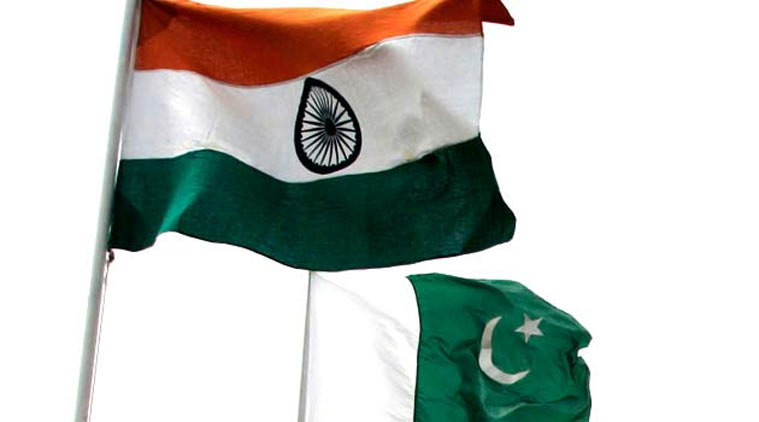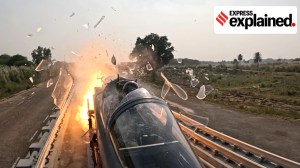1965 is about solemn commemoration, nothing to ‘celebrate’ in war
The golden jubilee should be a time to introspect and recall vital lessons, not an occasion for chest-thumping or playing political games.
 To be fair though, India had the upper hand during the war. It captured nearly four times more territory than Pakistan did, most of it high-value territory in Punjab and Kashmir.
To be fair though, India had the upper hand during the war. It captured nearly four times more territory than Pakistan did, most of it high-value territory in Punjab and Kashmir.
To mark the 50th anniversary of the 1965 India-Pakistan war, India has planned a series of events in New Delhi from August 28 to September 26. The Defence Ministry note calls for “commemoration and celebration of the Golden Jubilee of this great victory by Three Services…”.
Let us parse this statement carefully. To begin with: “great victory”.
The Defence Ministry’s official history of the 1965 war, edited by S N Prasad, blames the Indian Army’s “faulty strategy” which delivered “a large number of inconsequential jabs” and led “to stalemate on all fronts”. A stalemate can hardly qualify as a “great victory”.
[related-post]
To be fair though, India had the upper hand during the war. It captured nearly four times more territory than Pakistan did, most of it high-value territory in Punjab and Kashmir. According to the US Library of Congress Country Studies, “a continuation of the fighting would only have led to further losses and ultimate defeat for Pakistan”. That would have happened had the then Army Chief, General Joyanto Nath Chaudhuri, not miscalculated India’s ammunition stock and tank casualties, forcing the government to accept the ceasefire on September 22, 1965.
Next, the “Three Services”.
With its carrier INS Vikrant being refitted in dry docks and most other vessels under maintenance, the Indian Navy hardly played any part in the war. The Pakistan navy, in fact, destroyed the Indian radar station at Dwarka. The two air forces actively participated in the war, but neither side was able to achieve air superiority — nearly a stalemate. The Indian Army, of course, was at the forefront of the war, from the Rann of Kutch in April to Jammu and Kashmir in August, and in the tank battles in Punjab in September 1965.
The trickiest part of the statement is “commemoration and celebration”.
There can be different views on how the war should be remembered. No one can be against commemorating the valour and sacrifices of those who laid down their lives for the country. But while commemoration is a solemn act of remembrance, a “war carnival”, as planned by the Defence Ministry, conveys the impression of a festive celebration. There is an obvious possibility of glorification and triumphalism creeping into such celebrations. And with Pakistan as the enemy, jingoism and religious chauvinism might follow close behind.
What is it that India can “celebrate” about the 1965 war?
For 1971, you could celebrate the birth of a new country, Bangladesh — and the victory of liberty and freedom — while commemorating all those who fell fighting for that cause. For 1965, you can, at best, celebrate the defeat of Pakistani designs to annex Kashmir. But that would be almost a mirror image of the Youm-e-Difa or Defence Day celebrated by Pakistan on September 6: Pakistan believes that it foiled India’s designs over its territory in 1965 by putting up a formidable defence.
The planned grand military celebrations ideally need India’s own national war memorial. It was a promise that the Prime Minister had made during his election campaign, and Finance Minister Arun Jaitley allocated Rs 100 crore for a National War Memorial at India Gate in his first Budget last year. Unused, that amount lapsed — and no mention of the memorial was made in this year’s Budget. The golden jubilee of the 1965 war is a good occasion to revive the National War Memorial project.
Besides the golden jubilee, there is also a political reason for selecting the 1965 war for “commemoration and celebration” on such a grand scale. India was led during the 1965 war by Lal Bahadur Shastri, a non-Nehru-Gandhi Prime Minister with a powerful and enduring reputation for personal integrity — and the BJP would be happy to appropriate him in the same way as it has done with another Congressman, Sardar Vallabhbhai Patel.
Shastri’s slogan of “Jai Jawan, Jai Kisan” has special resonance today, when there are reports of farmer distress across India, and retired soldiers are protesting to press the demand for One Rank, One Pension.
Trapped between the humiliation of 1962 and the exhilaration of 1971, 1965 remains a forgotten war. The grand events planned at Rajpath will bring it into public consciousness. But unless we accept and debate the competing, and sometimes contradictory, interpretations of the war, these “celebrations” are unlikely to deepen our understanding of the events of that time.
It would be a mistake to allow the golden jubilee of 1965 to pass without telling the new generation why it happened — and how a repeat of those mistakes can be prevented.
sushant.singh@expressindia.com
- 01
- 02
- 03
- 04
- 05






































